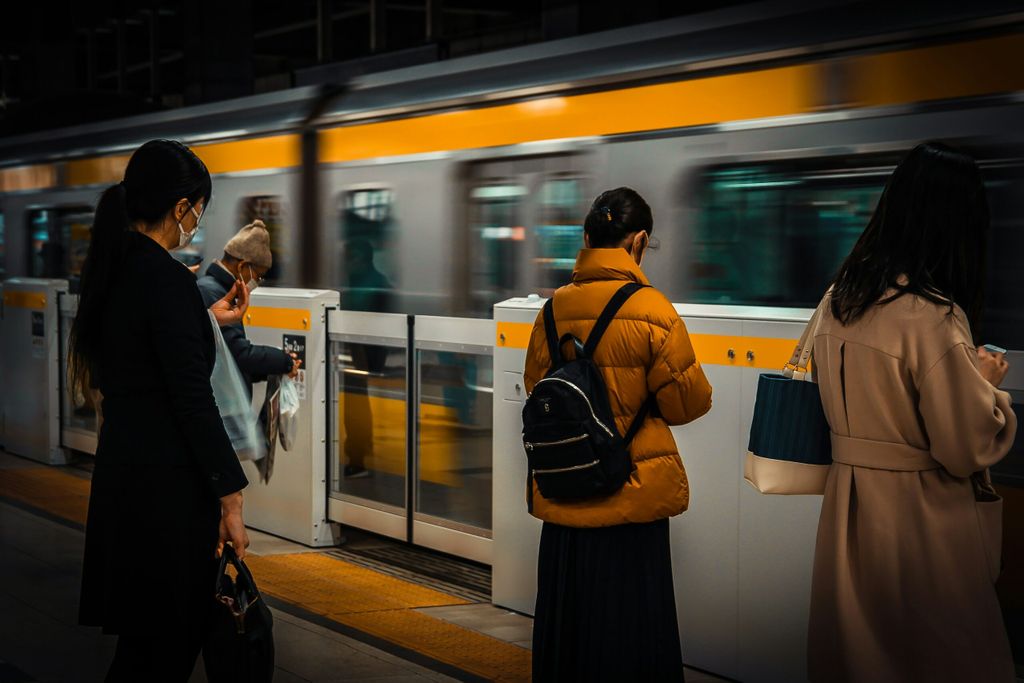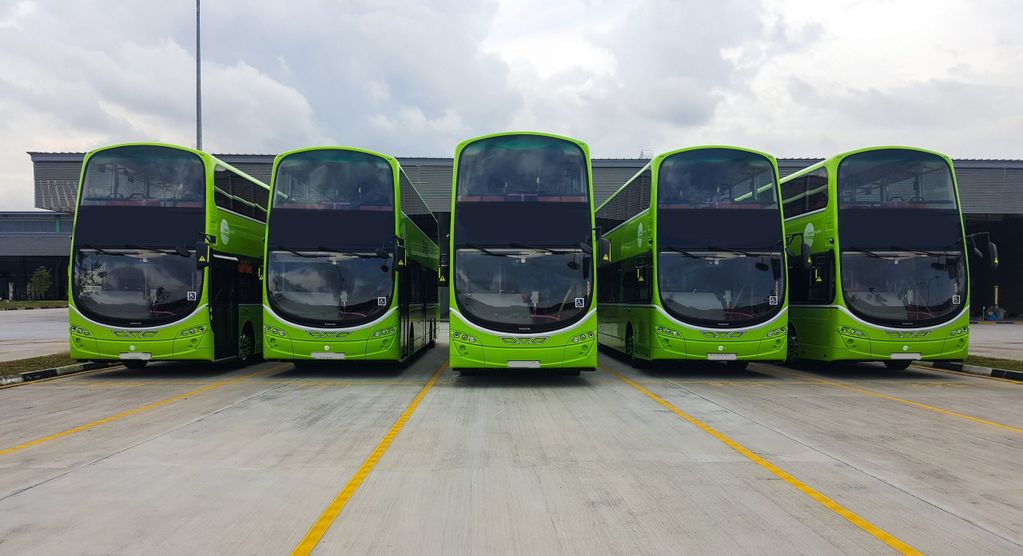
IT-TRANS 2022 speakers share their thoughts...Renée Amilcar of OC Transpo, Canada
Our Speaker Series concludes
Have you enjoyed getting to know more about a selection of our speakers for this year’s edition of IT-TRANS?
As we approach our time in Karlsruhe for the eighth edition (10-12 May 2022) we’ve been spending some time hearing from those whose expertise will light up our Conference and Exhibition.
As well as letting us know what the audience can expect from their session, we’ve been having a conversation about their career, thoughts on public transport, and life in and out of the sector.
So before we welcome the world of urban mobility to discuss what’s next for I.T. and digitalisation in public transport, we’re inviting our final IT-TRANS 2022 speaker to the interview stage.
Up first, we met Guillaume Gibon, CEO of CITiO in France. Then we sat down with Paola Cossu, CEO of FIT Consulting in Italy.
Now it’s time to meet the final speaker in our exclusive interview series – Renée Amilcar, General Manager of Transit Services with OC Transpo, City of Ottawa!
With Renée Amilcar
Q: Renée, during IT-TRANS you will be part of the Plenary Session “Building organisations, ready for the future” …What can you tell our readers about the session, and getting organisations ready for the times ahead?
I think the Plenary Session will be a very engaging discussion about what transit is going to look like long-term and how our organisations are going to have to adapt and develop new systems and approaches to create sustainable, liveable cities that provide service to our customers in a way that caters to their needs.
In the years ahead, I think we are going to see a shift toward organisation cultures with more of a focus on employee retention, work-life balance, and new tools, technology, and approaches to how we provide service. I also think the focus on environmental impacts and sustainability will continue to increase as time goes on, and we need to prepare for the changes and new technology that will bring as well. It is clear that public transit will never be the same. It will always play an important role in our communities, but we must ensure we adapt quickly to the new way of life for both past and future transit users.
Q: You have a prominent presence within UITP as a member of our Executive Board, our Policy Board, and chair the Assembly of our Bus Unit – you seem like the perfect person to ask about the important role of UITP in the public transport sector. What does it mean for you to be part of our association?
It’s such a pleasure to be a board member of the association and to Chair the Bus division. This organisation helps us to stay connected with transit agencies around the world, share best practices, and stay on top of industry trends. I also want to help to further this organisation’s objectives toward increasing the number of women in leadership at UITP and I am pleased to contribute both as a leader and as an example to others. UITP is looking to modernise, and this keeps me motivated to continue my collaboration with this respected organisation.
Q: In recent years, we’ve been placing a strong focus on women in leadership at UITP, working alongside our members, with the aim of advancing the presence of women in all parts of public transport – as passengers and employees. It’s a big topic, but what needs to be done to showcase the sector as a great career choice for women?
There is so much that can be said on this, but I do think the focus needs to be less on showcasing our industry and more about making the working environment welcoming and accessible to women by improving the workplace culture, considering the barriers to employment that women face, creating leadership and mentorship opportunities, and ensuring learning opportunities are made available and they are clear paths to advancement and leadership for all our employees. It also means enhancing our recruitment practices to ensure women and many other groups are well-represented in our hiring panels and recruitment materials and maintaining a focus on equity not only throughout the hiring process, but also within our organisations. It would be illogical to deprive ourselves of the voices and contributions made by women. At a time when inclusion, diversity, and equity
are top of mind for everyone, Mohamed Meghani, Secretary General of UITP, is an excellent example of how we can bold enough to believe in and defend the place of women in the transportation industry, and I commend him for this.
Q: Coming back to your role within our global bus activities…it’s been said that the bus has undergone what feels like a revival, a renaissance, in recent years, with a larger role in the spotlight and our cities. What’s happening in the bus sector right now that people should be talking about?
The habits and the routines of the average transit user have changed so much since the beginning of the pandemic. The ways people move around, work, and live their lives have changed, and the way they use transit has changed as well.
We have been experiencing historic lows in ridership, while also seeing how essential public transit is in our cities, whether it be for essential workers, or for vulnerable groups such as low-income families, seniors, racialised individuals, and new Canadians. With the transition to more remote work and the increasing costs of keeping a vehicle, more families are looking at reducing how many vehicles they own and reducing their carbon footprint, so in many ways some of our target demographics have changed, as have their destinations and schedules for using transit.
There’s also a massive shift toward the use of zero-emissions options in our transit systems, such as battery-electric e-buses, hybrid vehicles, and light rail transit. As the urgency of climate change continues to increase, we are also likely to see more of a demand from new customers that want to use a more sustainable form of transportation to get where they need to go, and we need to continue to look ahead to how we can attract and retain those riders.
During peak periods, heavier modes of transit such as the metro and trains are still appropriate. But if peak period traffic decreases and is stretched out over a longer period of time, buses can provide convenient service that that responds to the needs of individual customers and better reflects our new ways of life. Remote workers will have more flexibility to choose if and when they travel to work. A clean and comfortable bus running in a dedicated lane will better meet the needs of modern transit users, at a lower cost.
Q: And finally, as we introduce our IT-TRANS speakers to the UITP audience, what is drawing your own interest right now, outside of public transport? What helps you disconnect from a busy day?
To do our jobs well, we must take care of ourselves and ensure we are healthy, active, and well-nourished. It’s also important that we identify activities that help us to rejuvenate and give ourselves permission to take time for themselves, whether it’s enjoying time connecting with friends, partaking in hobbies or creative pursuits, a good meal, a walk for some fresh air, or a quiet night at home.
For myself, enjoying a good meal and spending time with my family after a long day can really help me to disconnect. I also believe in taking regular breaks to disconnect from work; it’s important that we all take some time away from work sometimes, and in the long run it is incredibly beneficial in terms of performance and productivity, as people are less likely to get burned out over time. It is also important for me to give back, which is why I am very involved in non-profit boards. As COVID-19 restrictions continue to be lifted, I’ll also have the pleasure of connecting more frequently with my entire team, which is another source of energy for me…
Thank you to Renée for her time and contribution to our interview series…and a huge thank you to all of speakers for their time and thoughts!
Join us in Karlsruhe to hear from Renée and her fellow speakers live
Meet IT-TRANS keynote: futurist, author and filmmaker Gerd Leonhard
Discover our Actions Points on building a diverse and inclusive sector







